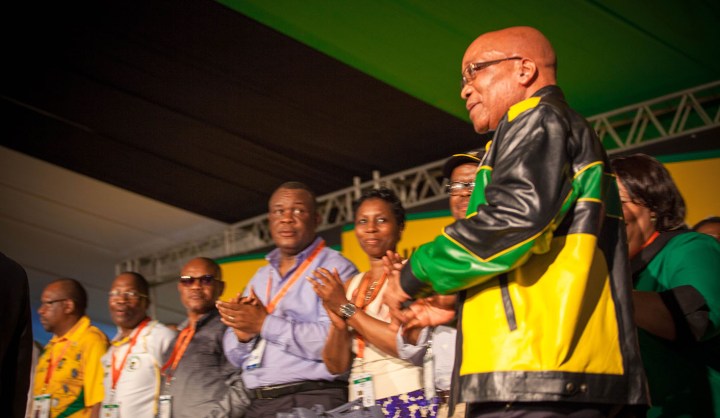South Africa
Zuma: Marikana ‘exposed organisational challenges’

Speaking on the opening day of the ANC’s 53rd national conference in Mangaung, President Jacob Zuma said the Marikana massacre on August 23 this year exposed organisational challenges in the community and workplace. By KHADIJA PATEL/NewsFire.
Zuma’s assessment is an indictment of the government and trade union structures that failed to prevent the massacre. “We need to avoid the danger of distance between leaders and members, both at the workplace and in the communities,” Zuma warned.
The ANC president’s assessment of the massacre outside the Lonmin mine in the North West was also in direct contradiction of the position adopted by the ANC’s alliance partner Cosatu and its affiliate the National Union of Mineworkers (NUM), both of which claimed the strikes that beset the mining sector this year were the result of outside interference and an attempt to weaken the tripartite alliance.
In September, a Cosatu declaration – entitled the ‘11th Congress declaration on the Lonmin Marikana platinum mine tragedy, the mining industry, and general poverty wages – specifically singled out recalcitrant political elements that it claimed had exploited mine workers to further political goals.
“Cosatu condemns, in the strongest terms, the opportunistic political exploitation of the plight of workers and incitement to violence by any groups or individuals for their own selfish ends,” the trade union federation declared at its congress earlier this year.
Similarly, NUM has repeatedly claimed mineworkers in Marikana were exploited by elements who sought to create anarchy within the ruling alliance. In early September the NUM leadership launched thinly veiled attacks on Julius Malema, a person “expelled from his organisation for ill discipline”, as he was described by NUM general secretary Frans Baleni, for sowing discord between union leadership and workers.
Zuma’s assessment of the Marikana massacre in his speech contradicts such contentions, emphasising the distance between the political and union leadership and ordinary South Africans. While Cosatu in its congress declaration emphasised other factors as fundamental causes of the massacre in Marikana, Zuma has forced scrutiny on the weaknesses of the trade unions but has also implicitly acknowledged government’s own liability.
Zuma was not entirely unsupportive of the Cosatu/NUM line, describing the strikes themselves as an attempt to destroy collective bargaining. He said: “These labour strikes were illegal, violent and appeared designed to undermine collective bargaining in general and the National Union of Mineworkers in particular.”
The federation and its largest member union are the largest worker representative organisations in South Africa’s mining industry. DM


















 Become an Insider
Become an Insider